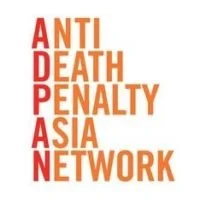Holding Australia to account on its commitment to death penalty abolition
On 17 July 2025, CPJP, together with our partners the Julian Wagner Memorial Fund and the Anti-Death Penalty Asia Network, made a joint submission to the fourth Universal Periodic Review of Australia.
What is the Universal Periodic Review?
Established in March 2006, the Universal Periodic Review (UPR) is a unique process under the United Nations Human Rights Council where each UN Member State's human rights record is peer-reviewed every 4.5 years. All 193 UN Member States have been reviewed three times. The fourth cycle is underway, and Australia will be reviewed in early 2026.
The stakeholder input process provides an opportunity for civil society organisations like ours to highlight areas where we believe governments need to improve their human rights practices and compliance with international obligations.
Our Focus: International Crime Cooperation in Death Penalty Cases
While Australia has committed to opposing the death penalty in all circumstances for all people, and is party to key international treaties prohibiting capital punishment, our submission identifies serious gaps in how this commitment is implemented in practice.
We focus specifically on Australia's international crime cooperation with countries that retain the death penalty – including mutual assistance requests, extradition, and police-to-police cooperation by the Australian Federal Police. Despite Australia's strong abolitionist stance, current practices in these areas risk contributing to death penalty cases overseas, potentially violating Australia's obligations under the International Covenant on Civil and Political Rights (ICCPR).
Key Concerns Raised
Our submission highlights several troubling examples:
Intelligence sharing with Myanmar: Between the 2021 military coup and May 2023, the Australian Federal Police shared 296 pieces of intelligence regarding drug exportation from Myanmar – a country where drug trafficking carries a mandatory death sentence under certain circumstances and which resumed executions in 2022 after over three decades with no known executions.
Limited oversight: Police-to-police cooperation in the pre-arrest phase of investigations lacks ministerial oversight, and the oversight body responsible for sensitive investigations is composed entirely of internal Australian Federal Police members.
Inadequate legislative safeguards: Current laws allow the Commonwealth Attorney-General the discretion to approve cooperation in death penalty cases based on vague ‘special circumstances,’ and extradition undertakings from requesting countries are not legally enforceable.
Our Recommendations
We call for urgent reforms including:
Removing the Commonwealth Attorney-General's discretion to permit information sharing in potential death penalty cases
Prohibiting extradition to countries where individuals may face capital punishment, or making undertakings legally enforceable
Requiring ministerial oversight for all police-to-police cooperation in cases deemed to be ‘high risk’ by the Australian Federal Police
Reforming oversight of police-to-police cooperation in death penalty cases, to include death penalty experts and human rights specialists
Increasing transparency around Australia's international crime cooperation activities.
Why This Matters
Australia identifies and is well-regarded as ‘a leader in efforts to end use of the death penalty worldwide.’ However, Australia's cooperation with law enforcement agencies in retentionist states – particularly in Asia where most drug-related executions occur – undermines this leadership role and potentially exposes individuals to the ultimate penalty.
With the number of known global executions increasing by 32% in 2024 – and 42% of these executions carried out for drug-related offences that do not meet international standards for ‘the most serious crimes,’[1] – it is more critical than ever that Australia ensures its actions align with its stated values and international obligations.
The UPR process provides an important opportunity for the international community to hold Australia accountable and push for the reforms needed to genuinely protect the right to life in all aspects of government policy.
[1] The application of the death penalty in retentionist states is strictly limited, applicable to only ‘the most serious crimes’, a term which international human rights standards require be ‘read restrictively and appertain only to crimes of extreme gravity involving intentional killing.’ See the International Covenant on Civil and Political Rights, opened for signature 16 December 1966, 999 UNTS 171 (entered into force 23 March 1976), art 6(2); Human Rights Committee, General Comment No 36 Article 6: right to life, UN Doc CCPR/C/GC/36 (3 September 2019) [10], [33].



